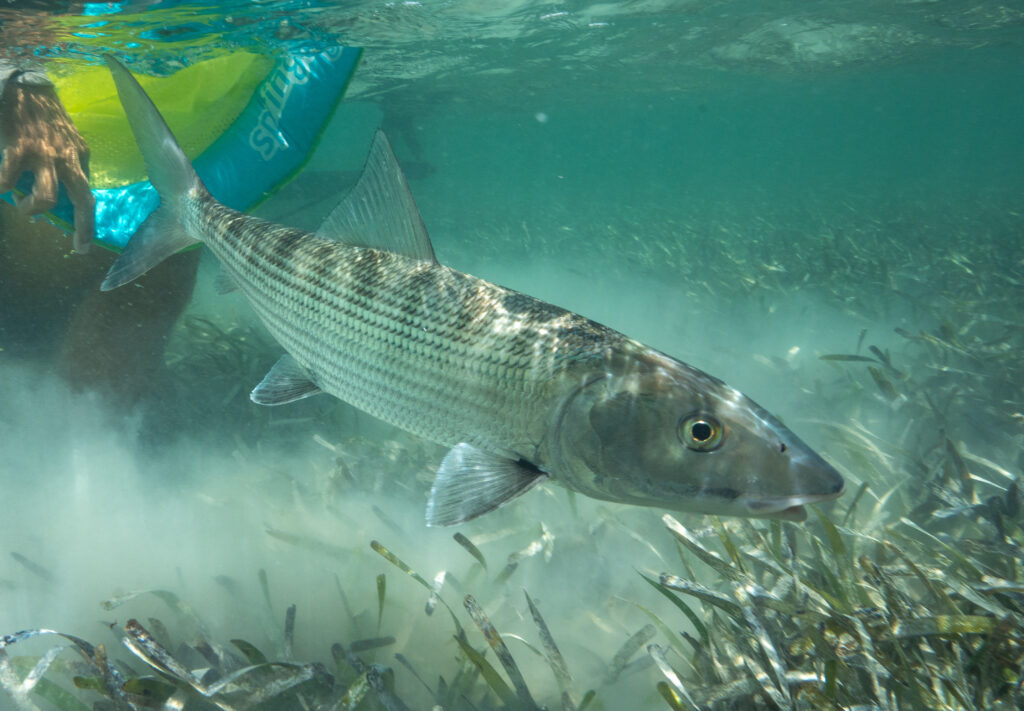Photo: Ian Wilson
A three-year study by Florida International University (FIU) and Bonefish & Tarpon Trust (BTT) has discovered pharmaceutical contaminants in the blood and other tissues of bonefish in Biscayne Bay and the Florida Keys.
“Coastal fisheries face increasing threats associated with human-based contaminants,” said Jim McDuffie, BTT President and CEO. “Pharmaceuticals are an often overlooked dimension of water quality and their presence in South Florida bonefish is cause for concern. These contaminants pose a significant threat to the flats fishery, an important part of Florida’s recreational saltwater fishery, which has an annual economic impact of $9.2 billion and directly supports 88,500 jobs.”
Since the study began in 2018, FIU scientists and BTT research associates, in partnership with Sweden’s Umeå University and the University of Agricultural Sciences (SLU), have sampled 93 fish in South Florida, finding an average of seven pharmaceuticals per bonefish, and a whopping 17 pharmaceuticals in a single fish. The list includes blood pressure medications, antidepressants, prostate treatment medications, antibiotics, and pain relievers. Researchers also found pharmaceuticals in bonefish prey—crabs, shrimp and fish—suggesting that many of Florida’s valuable fisheries are exposed, and not only the bonefish fishery.
Today at a BTT panel event in Tallahassee, FL, lead researcher Dr. Jennifer Rehage presented the study’s findings.
“These findings are truly alarming,” said Dr. Rehage. “Pharmaceuticals are an invisible threat, unlike algal blooms or turbid waters. Yet these results tell us that they are a formidable threat to our fisheries, and highlight the pressing need to address our longstanding wastewater infrastructure issues.”
Approximately 5 billion prescriptions are filled each year in the US, yet there are no environmental regulations for the disposal of pharmaceuticals worldwide. Pharmaceutical contaminants originate most often from human wastewater and are not sufficiently removed by conventional water treatment. They remain active at low doses, can be released constantly, and exposure can affect all aspects of fish behavior, with negative consequences for their reproduction and survival. Pharmaceutical contaminants have been shown to affect all aspects of the life of fish, including their feeding, activity, sociability, and migratory behavior.
“These troubling findings underscore the urgent need for Florida to expand and modernize wastewater treatment facilities and sewage infrastructure statewide,” said McDuffie. “Governor DeSantis’s leadership and historic funding for water quality improvements, along with legislative support and funding, have set us on the right path. Now we must expedite those efforts, increase investment over the long term, and pursue innovative solutions. We must accelerate septic to sewer conversion, and in those places where sewage is not available, require the use of advanced septic technology. The health of our citizens and the coastal resources that support Florida’s economy depend on it.”
Over the past three years, the state has passed major legislation to modernize its water policy and provided historic funding of more than $2 billion for water quality issues. Florida Representative Bobby Payne (R-19) highlighted the state’s extensive efforts to address water quality, saying, “Water quality is vital to our state’s identity and economy. That’s why I’ve made water issues one of my priorities and why I sponsored the Clean Waterways Act to address wastewater, septic, stormwater management, targeting nutrient reduction, and new standards for bio solid applications to mention a few. This historic legislation was a great step and is continuing to make a real difference for Florida’s natural resources.”




